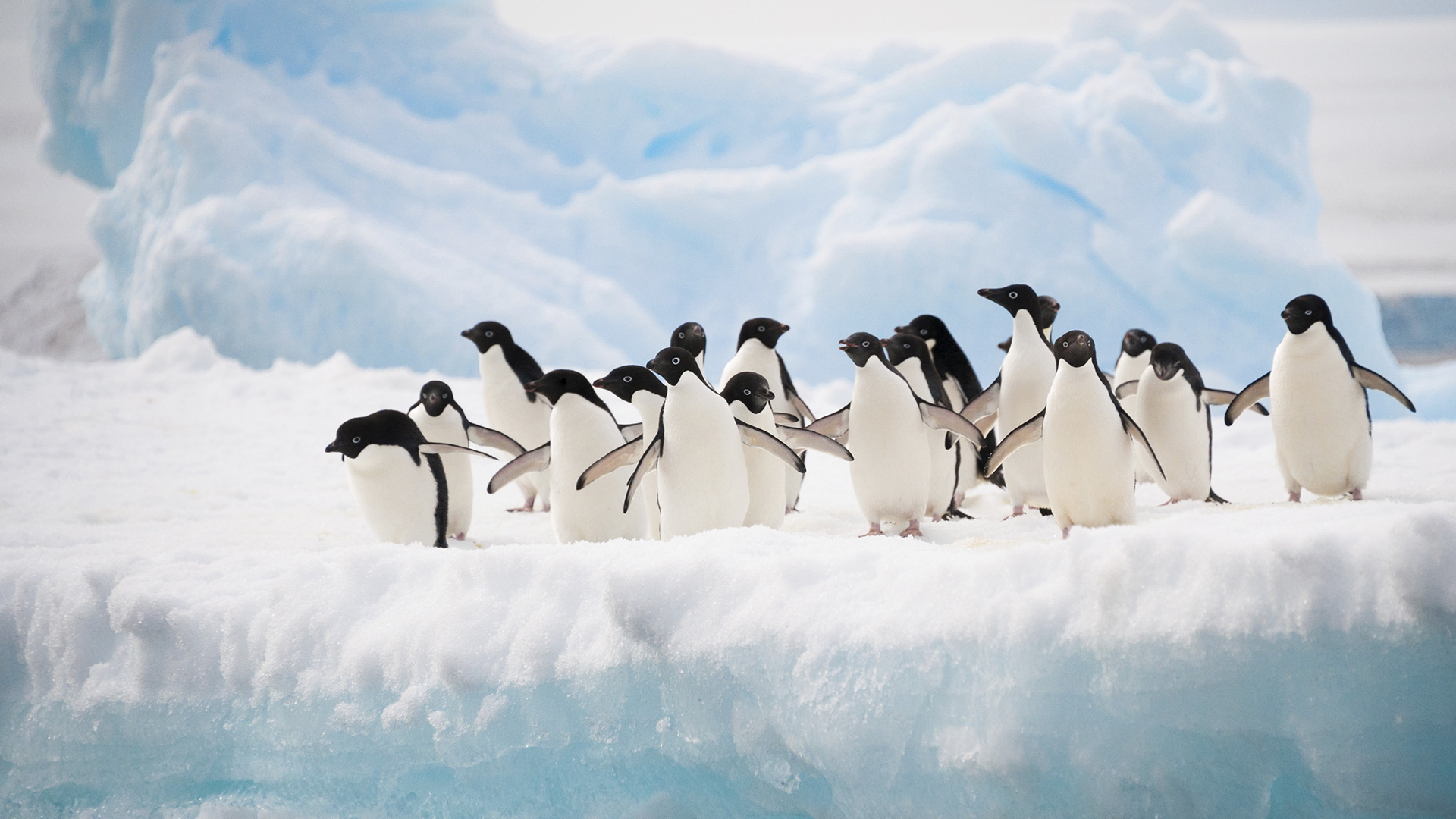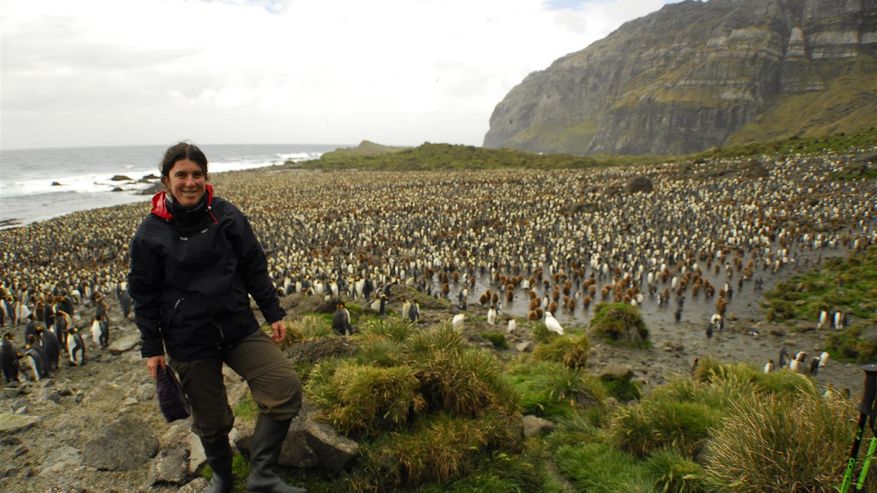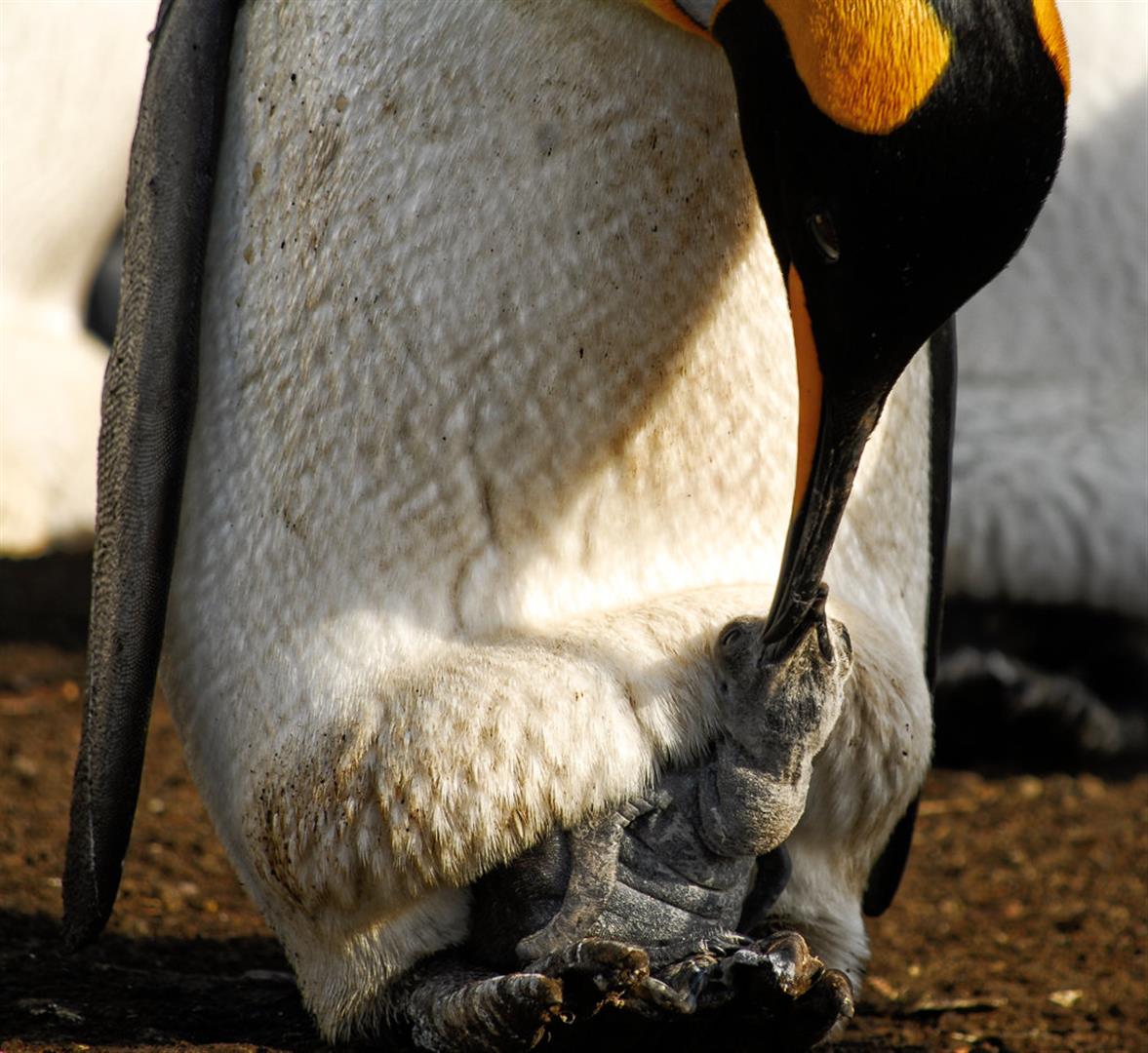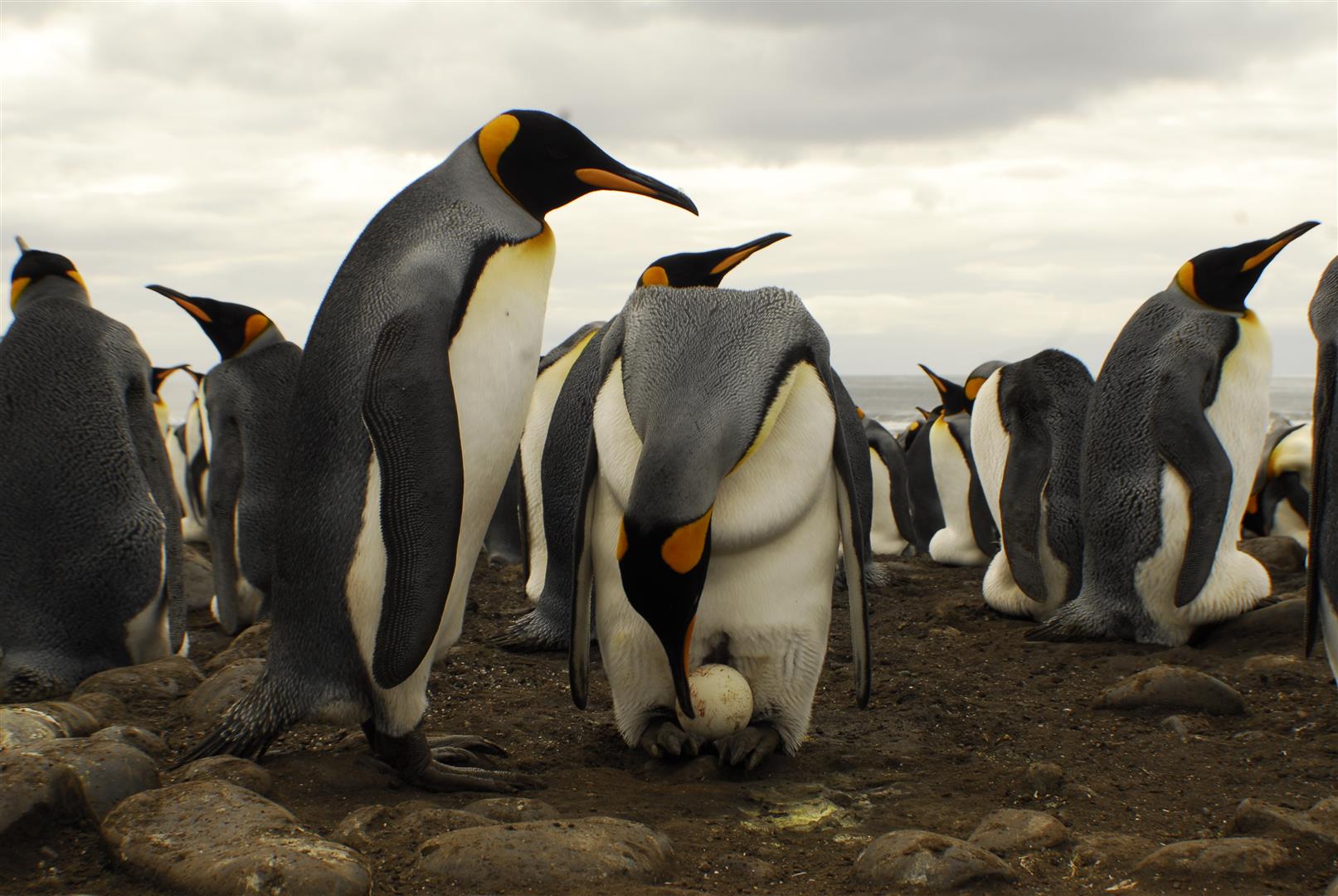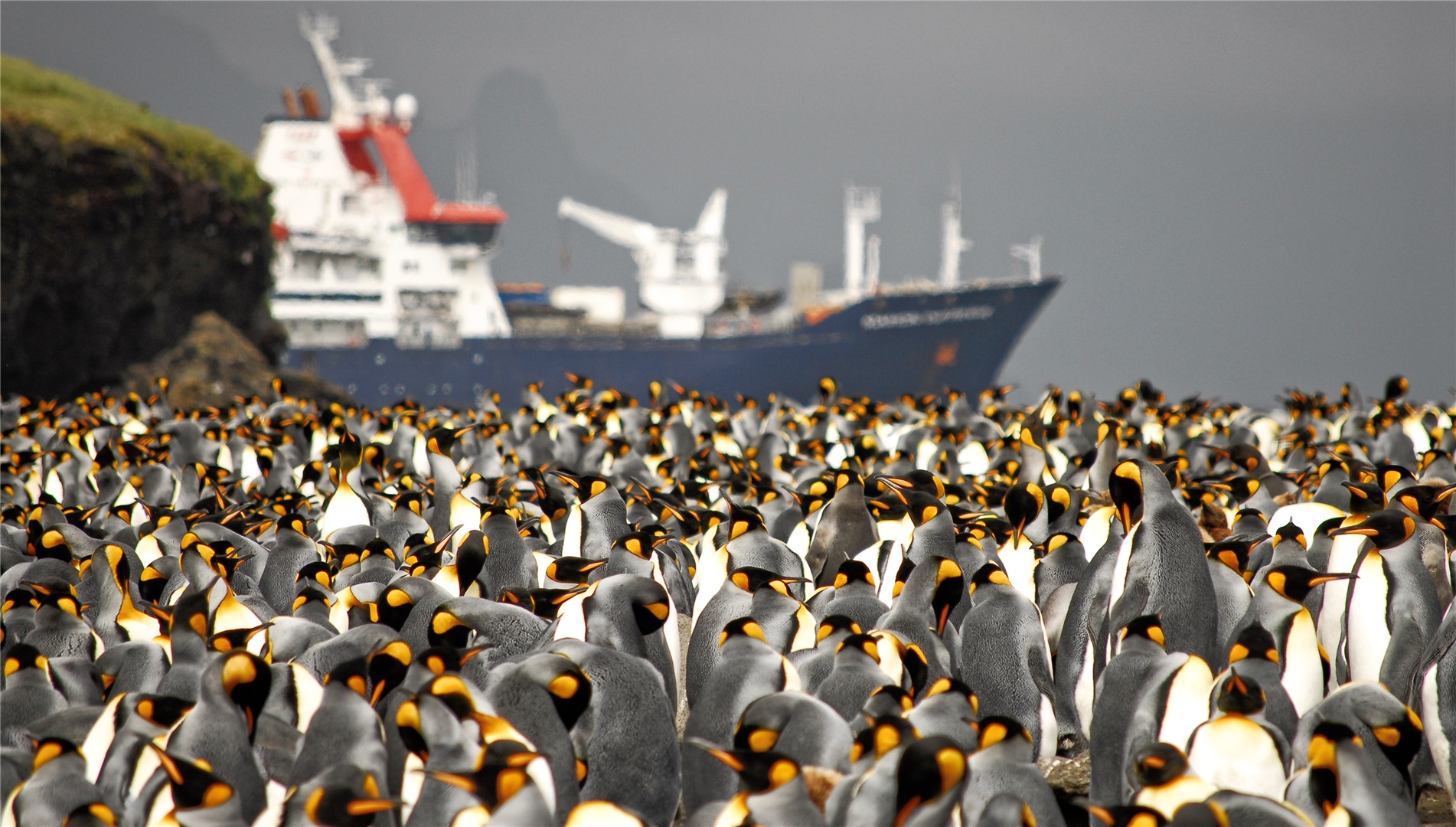Diving with king penguins
Foraging in the ocean is playing a crucial role for animals like penguins, particularly when there is offspring to feed. But what happens if the oceans and therewith the animals' food resources change? Penguins are so-called "central place foragers", who forage from a central point – the colony. This is comparable to our shopping behaviour: We take the quickest way to a supermarket, get our shopping and then bring our prey straight back home. But what would we do if all supermarkets within reach were suddenly closed? This is the problem penguins must face in a changing world, which is also impacting their foraging grounds.
The largest king penguin colonies are found on islands which are situated in the Antarctic Circumpolar Current, the most powerful current on the planet circling Antarctica which provides rich food resources. With continuing climate change we now have to find the potential impacts of future environmental change on marine resources, and thus the foraging behaviour and ultimately survival of the penguins.
As part of a joint project between the British Antarctic Survey in Cambridge and the Centre d'Etudes Biologiques de Chizé in France I investigated the foraging behaviour of king penguins on the islands of South Georgia in the Atlantic and Kerguelen in the Indian sector of the Southern Ocean. Using advanced tracking methods – equipping the penguins with small GPS devices and dive recorders – the animals' positions and detailed underwater movements during their foraging trips at sea are recorded. This tracking data combined with environmental images from satellites detailing features such as water temperature or ocean currents gives a precise three – dimensional image of the penguins' movements in the ocean.

Annette Scheffer is a marine biologist with an interest in the behavioural ecology of marine predators and the sustainable management of fish resources. She investigated the foraging behaviour of penguins and worked towards identifying marine boundaries of protected areas for penguins. Currently Annette Scheffer works as a Senior Monitoring, Evaluation and Policy Analyst at the Marine Stewardship Council in London.
The results show that the penguins forage in specific areas and layers of the water column. The Polar Front, a branch of the powerful Antarctic Circumpolar Current, and thermocline, the meeting of warm surface water heated by the sun with colder deeper waters, are of particular importance as they are characterized by strong thermal gradients. Nutrients and small organisms aggregate at in these oceanic structures, and in turn provide in turn food resources for small fish and ultimately larger animals such as penguins. Areas of high spatial stability are of particular importance, as they provide for reliable food resources: the supermarkets of the oceans.
But what happens if these oceanic structures change? How flexible are the penguins to adapt to such change while still being able to find enough food near the colonies? Annette's fieldwork on the island of Kerguelen gave her some unexpected insights into this question. The penguins did not return to the colony with full bellies as expected, but kept swimming southwards without being able to feed their chicks back in the colony. The recorded movements of the tracked penguins combined with the environmental satellite data showed a warm water anomaly in their usual foraging area near the colony, pushing the Polar Front and the deep cold water masses further southwards. The hungry penguins followed these oceanic structures, their foraging areas, to be able to find enough food. This made their way back to the colony too long and difficult to feed their chicks in time – the chicks starved.
The information gained from observing this extreme event at Kerguelen gives us important insights into the impact of future environmental change, and the potentially catastrophic consequences for marine and terrestrial life. In this regard penguins are important indicators of the state of the Southern Ocean marine ecosystem. Behavioural anomalies of these and other animals often indicate problems with their habitats, which we may not otherwise be able to derive with modern technological methods.
Further information:


